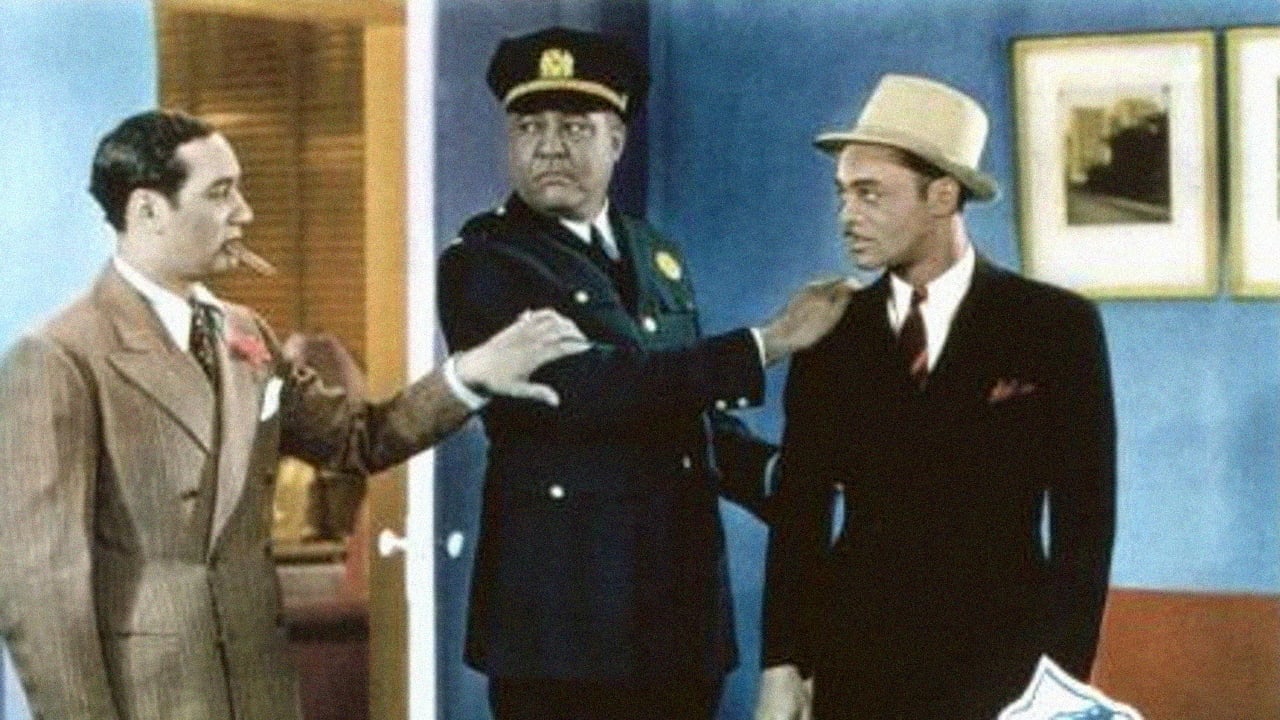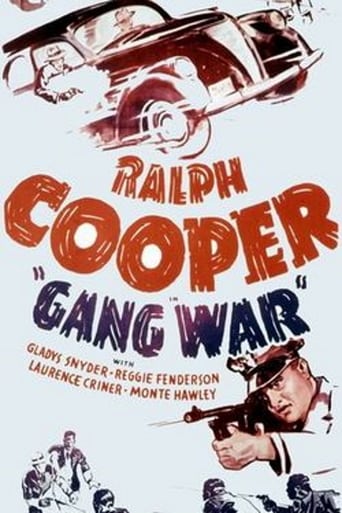

Ignore the fact that this is a movie with an all black cast and just take it for what it is, a really good crime drama.The plot of this little gem has Bob "Killer" Meade making his move to take over the gangs in Harlem after his boss refuses to do anything about a friend who was killed in a gang fight over territory.Meade kills his boss and then begins to move to increase his hold on the rackets and fight the other gangs. Its a violent affair that only pauses for time out with his girl who's an up and coming singer.An hour long this is a fast moving and very violent film. I would have thought that some of the nastiness of this film would have been banned by the production code, clearly the rules were being ignored by some independent producers. This film hearkens back to the precode films of James Cagney, Paul Muni and Edward G Robinson with its on screen death toll. (Even by todays standards the film is some what nasty in its violence) Directed by a sure handed Leo Popkin, this film uses montages of stock footage and newspaper headlines to make you feel as though you're seeing much more than you really are. The paper dodge is as clichéd as you can get but it manages to stretch a meager budget into something many of the big studios would have been proud to release. Clearly the man knew how to stretch a dollar and make you believe you were actually seeing more than you were.Far from perfect there are times when the budget shows in the use of of some stock sets. Also the cast is no always on the same level acting wise, but it doesn't really mater since the story moves things along so that you really don't care.Yes this is a program B film, but at the same time it manages to be a breath of fresh air to anyone who's seen more than their share of B programmers.Worth a look for anyone who wants to see a very good little action film. You may not love it but I'm pretty sure that if you take it on its own terms you'll come away liking it a great deal.
... View MoreBecause the "all colored cast" or "race movies" of the first half of the 20th century were made on such low budgets, due to systematized racial discrimination in the United States of America at that time, it is not really right to compare their production values with comparable mainstream "poverty row" B-movie crime dramas of the same era. Also, there has been, until lately, little or no attempt to preserve or restore race films, and thus many of the copies circulating as of the early 21st century are taken from scratched 16 mm prints, have garbled sound tracks, or derive from "dupey" videotapes in worse condition than comparable poverty row films of the same era. Also, culturally speaking, there are, in sheer terms of run-time, more musical and dancing interludes in race film crime dramas than in mainstream poverty row crime dramas of the same era, a fact that is jarring to some modern Caucasian reviewers, but that truthfully reflects the interests of the intended African American audiences of the era in which these films were made. Therefore, in terms of "ranking," "rating" or "voting" for race film crime dramas at IMDb, it is imperative to discard these factors and judge the movies on their own unique merits. When viewed in this way, "Gang War," starring Ralph Cooper is a solid entry in the genre. The typical conflict of interest between devoting screen time to the gangster plot and devoting screen time to the singers, dancers, and specialty acts applies, but if one of the reasons you seek out and watch these movies *is* to see the variety acts, then "Gang War" will leave you quite satisfied. A restoration print is probably too much to hope for, but i still hold out hope that some day a true benefactor of film history will be led to give these films the same sort of restoration that has been accorded other early movies.
... View MoreThis is a routine crime melodrama with amateurish acting, but it is still an interesting movie for a couple of reasons.It is one of a genre produced in the 30's and 40' that were called "race" pictures. These were movies that featured all black casts that mirrored lesser white "B" movies of the period. It is important to realize that the acting and script were not very polished, but that they were honest efforts to portray blacks in a more positive light. Looking back on that period and recognizing the stereotyping blacks suffered, one has to applaud the efforts that Popkin and the other producers put out.Ralph Cooper, playing the gangster, was a regular in these features but I thought he would look more at home in a board room than a pool room. His love interest, played by Gladys Snyder was a pleasant surprise. I found her to be believable and quite appealing. I was disappointed to find that she only appeared in one other movie also made in 1940.All in all, given the budget and distribution restrictions these pictures were subject to, I think they were a brave effort to reach a hungry and ignored audience. Not only do I think they did it well, but I think they displayed a pride in the black race that Hollywood has forgotten about. Even talented black actors and directors like Spike Lee seem to revel in the violence, drugs, and misogynism of "the hood". I honestly think the industry should take another look at these pictures and try to recapture the tenderness and emotions they invoked. Black viewers can take pride in these features and white viewers might develop a better understanding of black pride - without the violence.
... View MoreRalph Cooper, Lawrence Criner and Maceo Sheffield are three gang leaders in Harlem vying for control of the jukebox business, but none of them had a flair for acting like a tough gang boss. As a result, I never did get involved with the goings on. I guess I am spoiled by portrayals by James Cagney, Edward G. Robinson, Paul Muni and Humphrey Bogart in some of the mainstream crime movies of the 30's. This film has its fistfights, car chases and shootouts, and a love interest in Gladys Snyder, but it somehow left me cold.This was a "race" film with an all black cast, intended for black audiences, and it's interesting to note that Ralph Cooper was often called "The Bronze Bogart" in ads. As tough guys, there's no comparison.
... View More